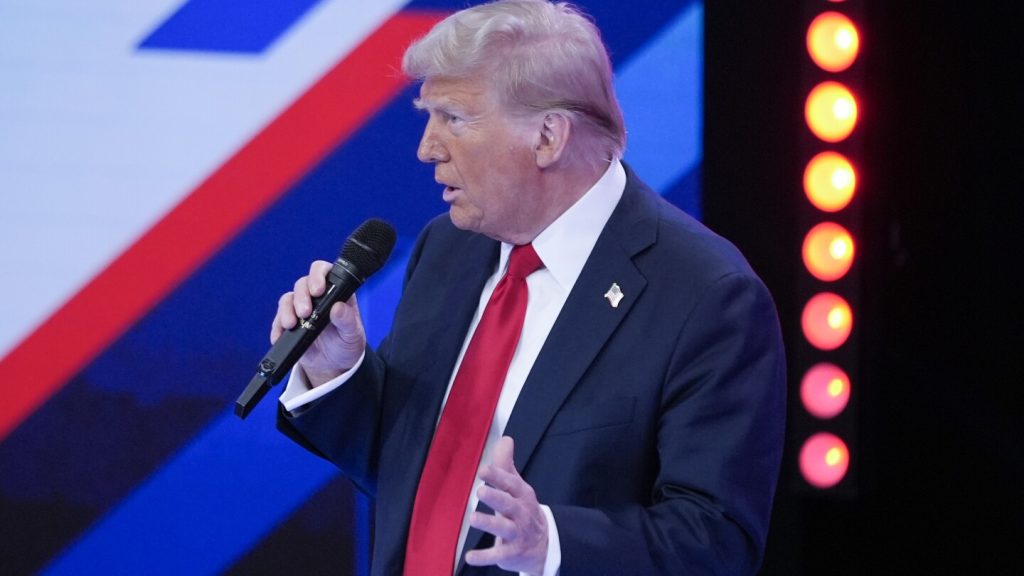Former President Donald Trump made controversial comments on Friday comparing the individuals facing charges for storming the U.S. Capitol on January 6, 2021, to the Japanese Americans who were incarcerated during World War II. He questioned why they were still being held and claimed that they were being treated unfairly, similar to the treatment of Japanese Americans during the war. Trump has consistently downplayed the events of January 6, referring to them as a “day of love,” despite the violence and injuries that occurred that day.
Trump’s remarks have sparked criticism from his political opponents, including Vice President Kamala Harris, who accused him of gaslighting the public regarding the events of January 6. The storming of the Capitol by Trump supporters was a significant event that led to the death of one supporter and injuries to many law enforcement officers. Trump has been vocal about his support for the individuals facing charges, referring to them as “hostages” and “victims,” and suggesting that he would pardon them if re-elected.
The comparison between the treatment of Japanese Americans during World War II and the individuals involved in the Capitol riot has been strongly rejected by many, including Sharon Yamato, the daughter of former Japanese Americans who were incarcerated. She stated that it is inappropriate to compare the two groups, as the Capitol rioters were involved in criminal activities that resulted in harm and death. The U.S. government formally apologized for the incarceration of Japanese Americans and provided reparations to the victims, acknowledging that it was a result of racial prejudice and political failure.
Trump’s claim that the individuals involved in the Capitol riot should have been released based on a Supreme Court ruling is misleading. The ruling in question limited a federal obstruction law that was used to charge some Capitol riot defendants, but most of the individuals who have been convicted or pleaded guilty were not charged with obstruction. Trump himself is facing charges related to his alleged involvement in efforts to overturn the 2020 election, which the Supreme Court ruling does not impact. Despite Trump’s claims that he only encouraged peaceful protests, his rhetoric on the day of the riot was more incendiary.
Overall, Trump’s remarks regarding the Capitol riot and the comparison to the treatment of Japanese Americans during World War II have reignited debates over the events of January 6 and the ongoing legal proceedings against the individuals involved. The differing perspectives on the situation highlight the complexities of addressing issues related to political violence and historical injustices. The impact of Trump’s statements on public opinion and the legal cases surrounding the Capitol riot remains to be seen. The controversy surrounding Trump’s comments underscores the ongoing challenges of addressing the legacy of political violence and discrimination in the United States.


